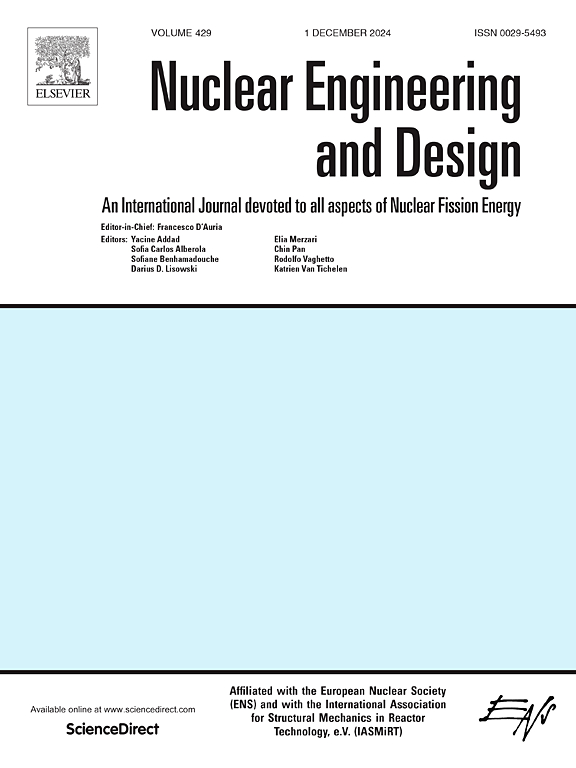Study on the design of unattended SCRS full-condition adaptive bypass flow systems
IF 1.9
3区 工程技术
Q1 NUCLEAR SCIENCE & TECHNOLOGY
引用次数: 0
Abstract
The Supercritical CO2 Reactor System (SCRS), a member of the fourth-generation reactor family, offers promising prospects for practical application. The use of S-CO2 as a working fluid leads to a more compact reactor design and higher energy conversion efficiency, positioning it as a strong contender for next-generation unattended intelligent reactor systems. However, the thermophysical properties of S-CO2 exhibit dramatic changes near the critical point, placing higher demands on the control system to ensure SCRS stability. To address the challenge that PID control theory struggles to meet the complex control demands of supercritical reactors, this paper proposes an intelligent control-based approach. It utilizes neural networks to adaptively adjust the outputs of fuzzy control and PID control in the bypass flow control system. The optimized controller outperforms the original PI controller during normal operational transients and exhibits robust performance under accident conditions. The work presented in this paper provides valuable insights for the design and optimization of control systems in supercritical reactors for practical engineering applications.

求助全文
约1分钟内获得全文
求助全文
来源期刊

Nuclear Engineering and Design
工程技术-核科学技术
CiteScore
3.40
自引率
11.80%
发文量
377
审稿时长
5 months
期刊介绍:
Nuclear Engineering and Design covers the wide range of disciplines involved in the engineering, design, safety and construction of nuclear fission reactors. The Editors welcome papers both on applied and innovative aspects and developments in nuclear science and technology.
Fundamentals of Reactor Design include:
• Thermal-Hydraulics and Core Physics
• Safety Analysis, Risk Assessment (PSA)
• Structural and Mechanical Engineering
• Materials Science
• Fuel Behavior and Design
• Structural Plant Design
• Engineering of Reactor Components
• Experiments
Aspects beyond fundamentals of Reactor Design covered:
• Accident Mitigation Measures
• Reactor Control Systems
• Licensing Issues
• Safeguard Engineering
• Economy of Plants
• Reprocessing / Waste Disposal
• Applications of Nuclear Energy
• Maintenance
• Decommissioning
Papers on new reactor ideas and developments (Generation IV reactors) such as inherently safe modular HTRs, High Performance LWRs/HWRs and LMFBs/GFR will be considered; Actinide Burners, Accelerator Driven Systems, Energy Amplifiers and other special designs of power and research reactors and their applications are also encouraged.
 求助内容:
求助内容: 应助结果提醒方式:
应助结果提醒方式:


